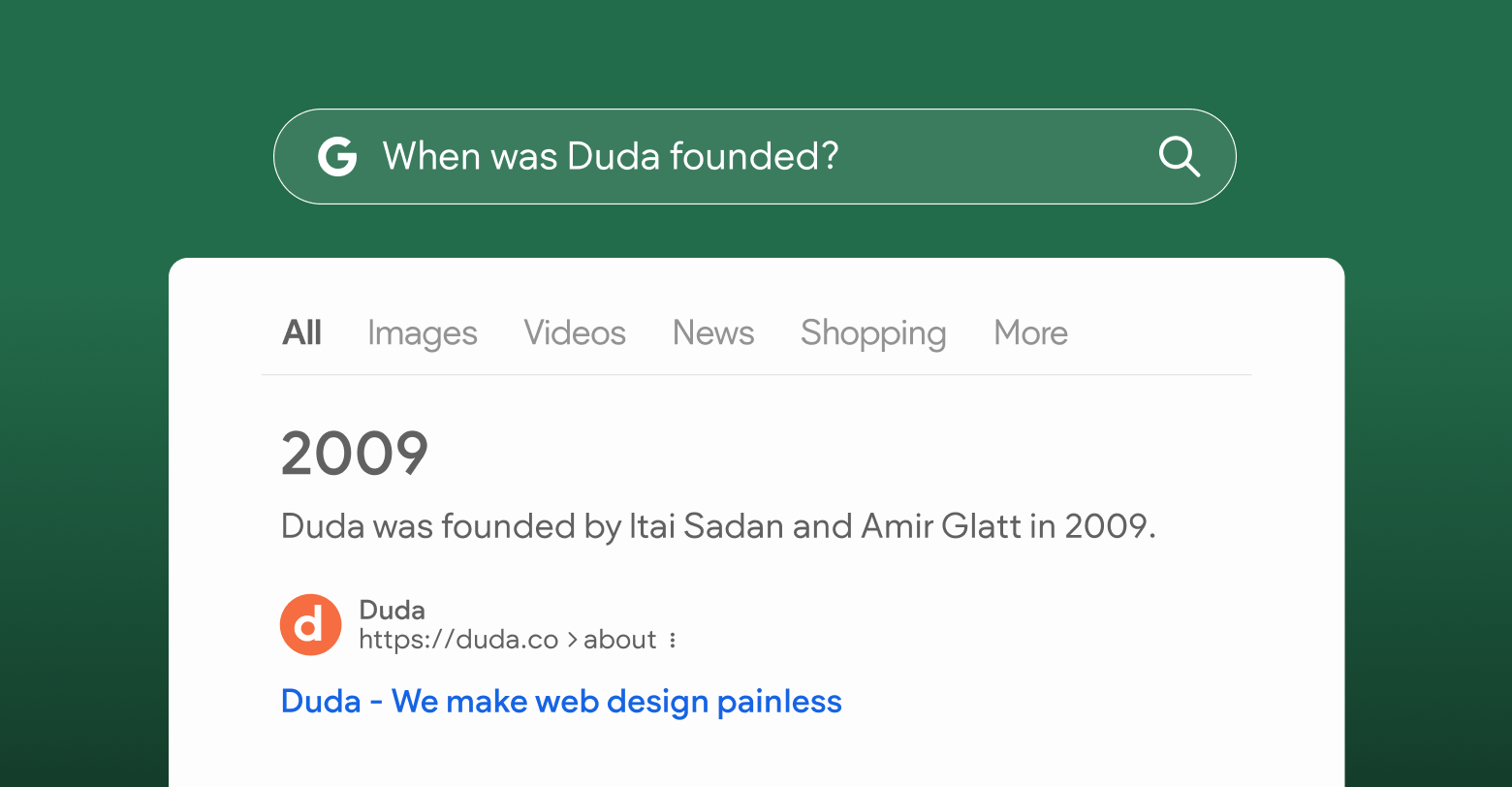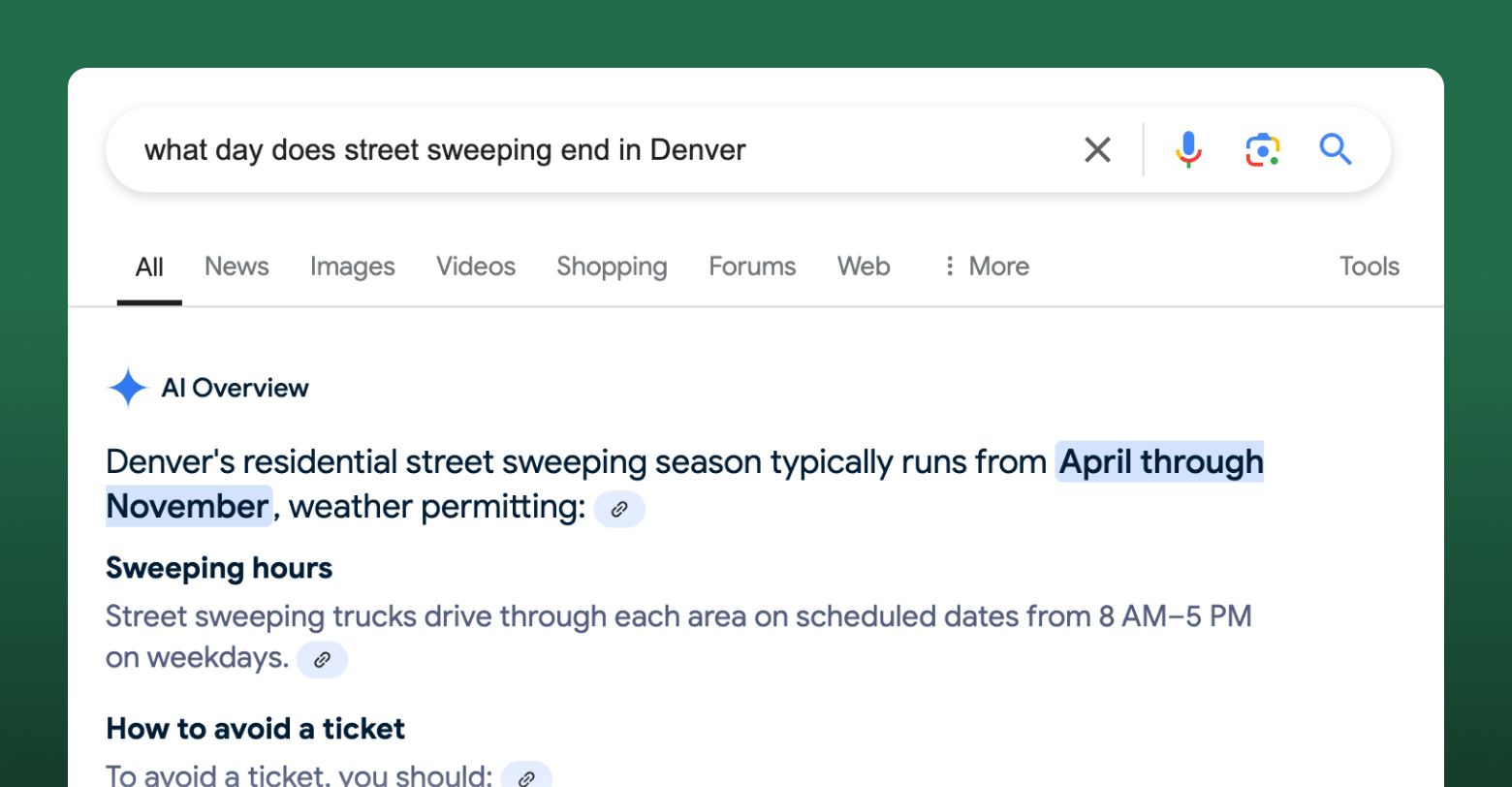What I just experienced is a phenomena experts are calling the “zero-click search,” and they’re a lot more common than you might expect.
What is a zero-click search?
Rand Fishkin, cofounder of SparkToro,
among other ventures, has been beating the zero-click drum for quite a while. In 2019, he
published research showing that 50.33% of all Google searches ended without a click to any web property in the results. He found similar results the following year, then again as recently as last July.
In the United States today,
58.5% of all searches can be categorized as “zero-click” searches. Of that 58.5%, 37.1% of users don’t click on anything, while 21.4% conduct another search.
When users do click on a result, they only visit the open web 70.5% of the time. Over a quarter of clicks, 28.5%, lead to Google Maps, Images, News, YouTube, or some other Google owned property, while another 1% lead to ads.
Together, this means that, according to Fishkin’s research, “for every 1,000 searches on Google in the United States, 360 clicks make it to a non-Google-owned, non-Google-ad-paying property.”
In the EU, where regulators are applying increasingly more scrutiny to the tech giants, the results aren’t very different. There, for every 1,000 Google searches, 374 clicks go to the open web. That’s only 14 more clicks than in the States.
This situation has been a concern since the very inception of the Knowledge Graph. In 2014, Google’s then head of search, Amit Singhal, attempted to
assuage publishers who saw it all as little more than shameless
website scraping.
Featured snippets and knowledge panels are just two of the many ways Google captures search traffic. Earlier this year, Google released their
AI Overview panels, the culmination of a decade-plus effort to transform the
Search Engine into an
Answers Engine. Who knows what Fishkin’s research will look like next time.
What does zero-click search mean for SEO?
The rise of zero-click searches will undoubtedly have an impact on
search engine optimization. What that impact looks like, however, depends entirely upon your own goals.
To start, not all zero-click searches are a bad thing! Consider my search about parking from the beginning of this article. The City and County of Denver wrote their webpage on street sweeping with the intent to spread public awareness. Google’s featured snippet, then, directly contributed towards that goal.
There’s evidence that local businesses benefit from zero-click experiences as well.
Siinda, in partnership with
Near Media, asked 300 German, Irish, and French consumers, split equally by country and device, to find a professional to assist them with a kitchen remodeling project.
In this high-intent scenario, 71% of all searches ended with at least one click. Their research also revealed that, when a
local pack was present, Google Business Profiles drew the plurality of engagement—42% to be exact.
This behavior shouldn’t come as a surprise. Unlike my parking search, a search for local services demands action. For most agencies, this should be reason enough to continue to invest in SEO.
Note, though, that 71% figure from Siinda’s research is still less than 100%. In a survey conducted by the
World Association of News Publishers, 80% of respondents claimed that their search traffic was down in 2023 compared to 2022, and 76% of all respondents claimed their traffic fell between 1% and 20% year-over-year.
Generative AI, particularly the newly announced
search function embedded within ChatGPT, is unlikely to buck this trend.
Let’s process all of this data. Organic traffic is down, but search isn’t dead. Search engine optimization continues to benefit certain groups that do not rely on advertising dollars, like public agencies, nonprofits and local businesses. What do we do now?
Introducing zero-click content
Talk to anyone familiar with social media marketing and they’ll happily discuss the challenges associated with creating “zero-click content.” Instagram, an infamous example, has long refused to allow links in their posts. TikTok, another social media leader, also relegates URLs to user biographies. Snapchat doesn’t allow links at all!
The phrase “zero-click content” is another insight by SparkToro. In an
article by Amanda Natividad, SparkToro opines that marketers should invest in content that “offers valuable, standalone insights..., with no need to click.”
She argues that zero-click content provides consumers with the dopamine hit immediately. Give them the absolute juiciest piece first, then lure them into the full piece of content.
Take, for example, Gianmarco Soresi, a viral comedian known for sharing snippets of his crowd work on TikTok. Among comedy circles, the rise of crowd work on social media has proven controversial, yet, in an interview for the
New York Times, Soresi said “to be a stand-up comedian in today’s world, you have to be a content machine.”
A similar article by the Guardian doubles down on this point. Author
Brian Logan writes “behind the [crowd work] trend is the squaring of a circle for acts who must use the internet to promote themselves, but who don’t want to ship all their best jokes for free.”
This is exactly the kind of marketing that Natividad is speaking to in her SparkToro article. Comics are posting the dopamine hit (short, sharable snippets of crowd word) to a zero-click platform (TikTok) with the intent of luring them into their show.
To combat zero-click the decline in organic traffic brought on by zero-click searches, we have to become content machines.
It’s worth reading
Natividad’s entire article on the subject. We’ll also be joining Rand Fishkin, founder of SparkToro, for an exclusive webinar exploring this very topic.
Expert Neil Patel offers more technical advice for marketers on
his blog, arguing that professionals should be more judicious in the keywords that they select by avoiding optimizing for those that appear as AI Overviews or direct answers.
Traditional SEO strategies still apply, too. Agencies should continue to create high-performing websites with great Core Web Vital Scores, high levels of accessibility, and stellar content that adheres to
E-E-A-T standards.
Putting it all together
It’s a weird time for organic traffic, to put it lightly. For many websites, search referrals are dropping, and the dramatic rise in AI tools isn’t poised to help.
Thankfully, with change comes opportunity. Search engine optimization continues, for the foreseeable future, to be a powerful way for businesses to drive organic traffic. Local businesses, especially, have little to worry about.
In the near future, innovative marketing strategies like SparkToro’s “zero-click content” may prove to be an exciting opportunity for cutting-edge agencies. Consider adding short, digestible, high-value to your marketing strategy in 2025. It might pay off.












